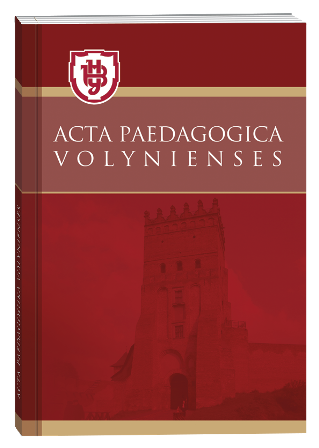THE USAGE OF DIGITAL ONLINE TOOLS FOR EFFECTIVE IMPLEMENTATION OF DISTANCE LEARNING
DOI:
https://doi.org/10.32782/apv/2022.1.2.25Keywords:
digital online tools, distance learning, learning platforms, online courses, virtual learning environment, online service, educational processAbstract
The article characterizes the expediency of using a single virtual learning environment (VLE – Virtual learning environment) due to which students gain access to educational content, have the opportunity to interact with it, with teachers and with each other; reveals the facilities of the learning platform "Moodle" for the implementation of distance learning; analyzes digital online tools and their abilities to prepare for presenting new material and new information, training, performing tasks, testing knowledge, reflection and communication between the participants of the educational process; defines criteria for selecting tools for distance learning; outlines the skills which are gained by students during distance learning: information, multimedia, organizational, communicative and productive literacy; presents the list of platforms of open online courses for the organization of teachers’ self-education ("Prometeus", "Coursera", "EdEra", "iLearn); gives recommendations for teachers on the distance learning organization which are the following: to make the educational materials accessible, interesting, visual; to provide clear instructions for task performance and place instruction materials based on the certain topic on the educational platform of higher education institutions (Moodle); carefully select tools to prepare for the studying new material, presenting new information, training, knowledge testing, reflection; organize educational communication with students through Meet, Zoom, Skype, Viber; to place multimedia materials (presentations, videos, etc.) on the educational platform of higher education institutions or on the Internet (Classroom, Moodle, Google-disk), which will help students to study a certain topic; provide students with a list of Internet sources that will facilitate learning of educational material; provide regular feedback on the evaluation of learning outcomes.
References
Блог Центру навчальних та інноваційних технологій УКУ ( про методики викладання в т.ч. із технологіями, про освітні ресурси, цифрові інструменти та багато іншого). URL: http://ceit-blog.ucu.edu.ua/resursy/tsyfroviinstrumenty/testy-ta-kvizy/ (дата звернення: 15.01.2022).
Дистанційний формат взаємодії суб’єктів освітньої діяльності : методичні рекомендації / за ред. І.В. Удовиченко. Суми : НВВ КЗ СОІППО, 2021. – 198 с.
Застосунки для створення інтерактивного цифрового контенту. URL: https://cutt.ly/MI6ZN2X (дата звернення: 10.01.2022).
Організація дистанційного навчання в школі: методичні рекомендації. URL: https://mon.gov.ua/storage/app/media/zagalna%20serednya/metodichni%20recomendazii/2020/metodichni%20recomendazii-dustanciyna%20osvita-2020.pdf (дата звернення: 17.01.2022).
П’ять найкращих інструментів для створення карт знань. URL: https://teach-hub.com/p-iat-naykrashchykhinstrumentiv-dlia-stvorennia-kart-znan/ (дата звернення: 11.01.2022).
Рогульська О.О. Особливості підготовки майбутніх учителів іноземної мови у закладах вищої освіти України. Проблеми підготовки сучасного вчителя: зб. наук. праць Уманського державного педагогічного ун-ту імені Павла Тичини / ред. кол.: О.І. Безлюдний (гол. ред.) та ін. Умань: ВПЦ «Візаві», 2018. Вип. 17. С. 291–304.







